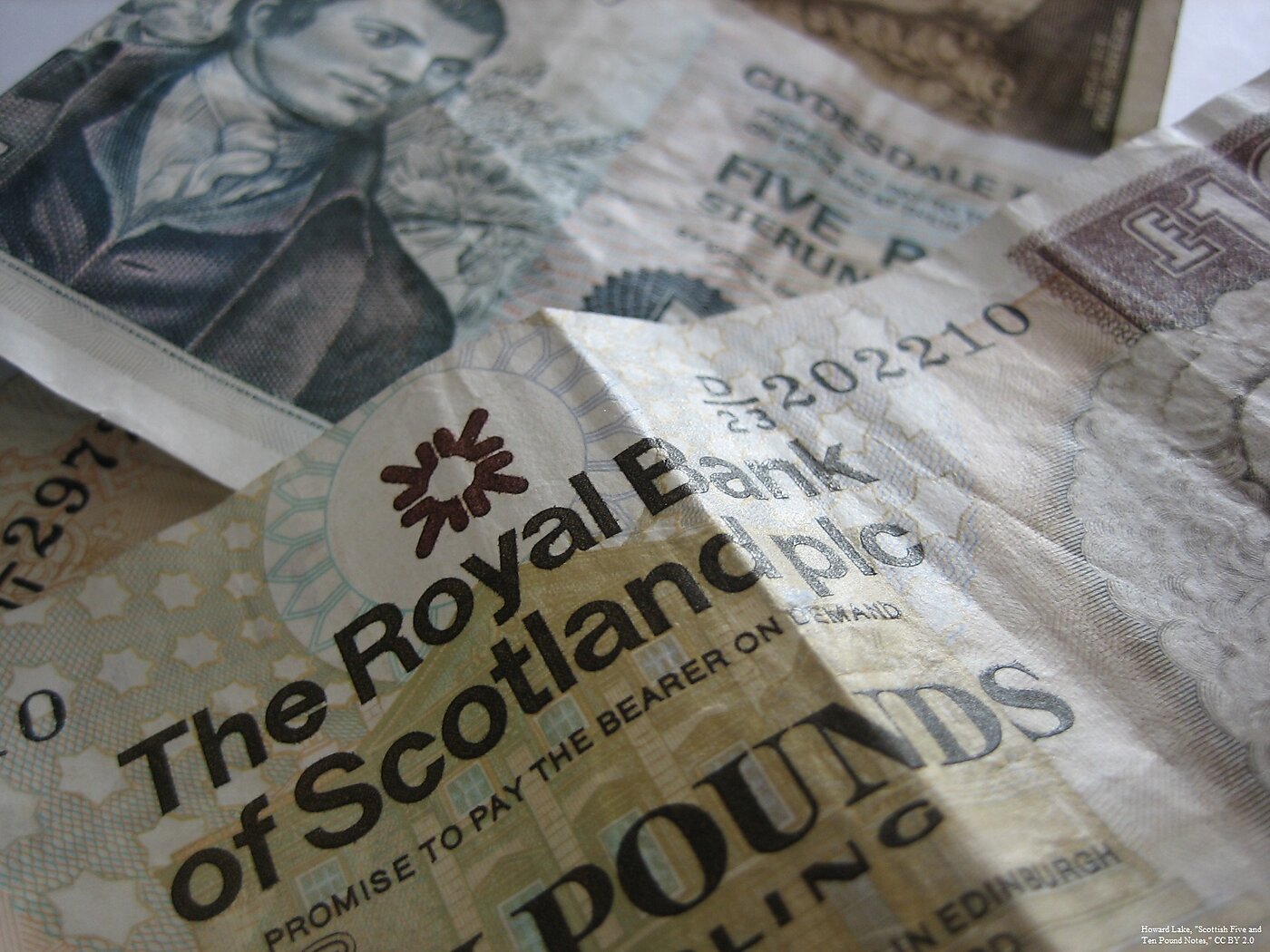There are, I’m sure, some parts of the Scottish National party’s recent blueprint for an independent Scotland to which the British government might reasonably take umbrage. But the plan’s call for Scotland’s continued use of the pound sterling, which has drawn the most criticism, isn’t one of them.
The pound sterling has been Scotland’s monetary unit since 1707, when the Act of Union led to its adoption in place of the Pound Scots. Scotland’s actual paper currency, on the other hand, has mainly consisted of sterling-denominated notes supplied by several of its own commercial banks. The nationalists’ proposal is therefore largely (though not entirely) a call for adhering to the status quo, and a rejection of the alternatives of either adopting the Euro or having Scotland once again establish an independent monetary standard.
How has such a seemingly reasonable and innocuous plan managed to ruffle Parliament’s feathers? According to The New York Times, the British government
says it is unlikely to agree to share the pound with an independent Scotland, citing the problems experienced by the 17-nation euro zone to illustrate the dangers of a common currency without political union. London says it would be difficult to have the Bank of England act as guarantor of the pound if Scotland had a different fiscal policy from Britain, for example. Nationalists hint that if Scotland cannot keep the pound, it will not accept its share of Britain’s debt.
Now I’ve no dog in the fight over Scottish independence, but it seems to me that the folks who are saying this hae git thair bums oot the windae. For starters, an independent Scotland would hardly need the British government’s permission to go on using the pound sterling: it’s hard to imagine how the U.K.-sans-Scotland could prevent Scottish citizens and banks from continuing to use the pound without resort to such Draconian legislation as would make U.S. money-laundering laws seem toothless in comparison. In both England and Scotland today, for example, it’s perfectly legal for banks to offer foreign currency demand deposit accounts, not to mention other sorts of foreign currency services. Just how would a truncated British government contrive to prevent, and to justify preventing, an independent Scotland from continuing to enjoy the right to offer such services, while adding the pound sterling to the list of “foreign” currencies to which the right pertains?
If the Brits were really willing to play hardball, I suppose they could try placing an embargo on shipments of Bank of England currency to Scotland, like the one the U.S. imposed, as part of its effort to topple Manuel Noriega’s government, on shipments of fresh Federal Reserve notes to Panama. But whereas Federal Reserve notes had long been the only form of paper currency known in Panama’s dollarized economy, the Scots, as I’ve already observed, have long managed without Bank of England notes, and could easily continue doing so, especially once freed from British-imposed banking regulations. Settlements and redemptions of Scottish bank balances would presumably have to be done using London funds. But unless the Brits wanted to impose severe exchange controls, which besides being embarrassing would harm English citizens no less than Scottish ones, that option would pose no great difficulty.
And the Eurozone comparison? A load of mince! The reason the Eurozone is a mess is because the Euro isn’t the German mark–that is, because it’s a multinational currency supplied through a multinational central bank, rather than a national currency that happens to be employed by several nations. Creditors to profligate Eurozone nations, or to irresponsible Eurozone banks, have therefore had reason to hope that the ECB might ultimately come to their aid, and especially so since the Growth and Stability Pact became a dead letter in 2003. Creditors to dollarized countries, on the other hand, have no reason to count on Fed bailouts. Were either Ecuador or El Salvador unable to service its debt, or were a Panamanian bank teetering at the brink of insolvency, it would be of no concern to the Fed, or the FDIC, or any other U.S. government agency. Dollarized or not, Ecuador, El Salvador and Panama have to manage on their own.
And how have those countries been doing despite having no lender of last resort to turn to in a crisis? Just dandy, as a matter of fact. Indeed, it seems that not having a lender of last resort has proved to be something of a boon to dollarized economies, because, by doing away with, or at least greatly limiting, any prospect of a bailout, it has caused creditors and banks to behave more prudently.
If the experience of dollarized countries can be relied upon, Scotland, besides not needing England’s permission to go on using the British pound, would be better off not having such permission. It stands to benefit, in other words, by steering clear of any formal arrangements that might appear to make the Bank of England, or any other non-Scottish authority, responsible in any way for the safety and soundness of Scottish bank liabilities or government securities. Let the Scots follow the example of Ecuador and El Salvador, and “poundize” unilaterally. If the British Parliament refuses to cooperate, so much the better. Who knows: Scotland could even end up with a banking system as good as the one it had before 1845, when Parliament, which knew almost as little about currency then as it does now, began to bugger it up.


